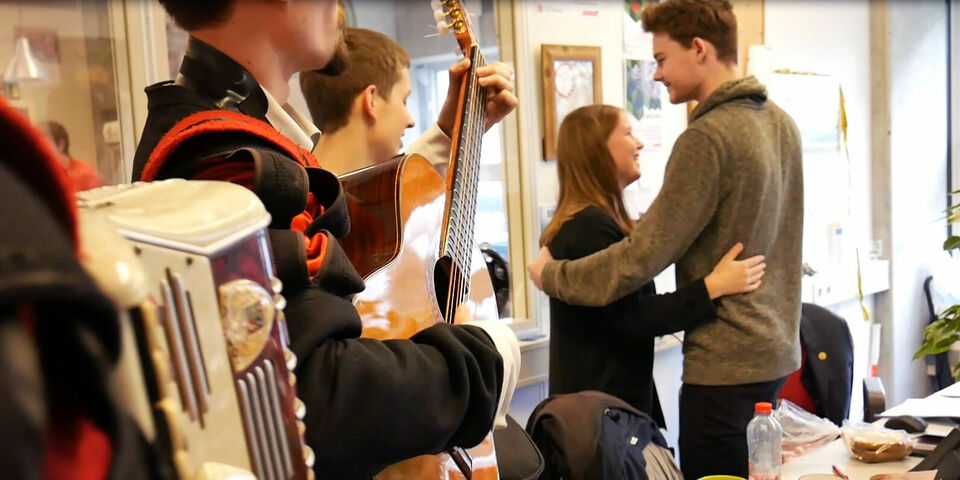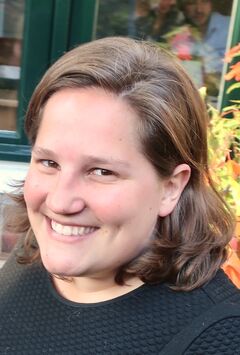Spontaneous serenades and the science of love
Valentine's Day. 'American nonsense.' 'Commercialism.' We may well mumble something that gives the impression of utter disinterest, but let's be honest, who doesn't feel a rush of happiness when presented with an unexpected card or other surprise by someone we love? Cursor's Cupid made his own small musical offering and went in search of a little 'science of love'.
Who do you think deserves a serenade? Accompanied by four musical members of Tuna Ciudad de Luz, our video reporter Collin Wagenmakers roamed the campus asking this question. Like to see who he ran into and the kind of reactions this musical romantic surprise drew from people? Watch the video below.
For a more scientific approach to love taken by TU/e PhD candidate Deedee Kommers, read on below the video link.
"Having completed my thesis I know with even greater certainty that love exists"
Love comes in many guises. As well as the romantic love celebrated on Valentine's Day, we are also familiar with pure sexual attraction, Platonic love or friendship, and the more abstract love of nature or a supreme being. And, of course, the love of a parent for his or her child, and vice versa the bond felt by a child towards his or her parents.
The latter form of love played a leading role in the description of the universal principle of love in the thesis of Deedee Kommers, who having completed her general medical training started a PhD. At the end of January, she obtained her doctorate at the TU/e's Department of Industrial Design. Having described the biology of love, she studied how premature babies in incubators in the Máxima Medical Center in Veldhoven physically respond to what is called 'kangaroo care', which involves giving the baby skin-to-skin contact with the parent's chest. She proved that this calms the baby's heartbeat and changes the level of the ‘cuddle hormone’ oxytocin. This indicates a reduction in the baby's stress - and that both feels good and helps the baby's brain develop.
The claim made by the Eindhovens Dagblad, picked up by other newspapers such as de Telegraaf, that with her work Kommers has ‘proven’ that love exists, is something she personally finds a bit ridiculous. “Whether love exists is not what I was researching. Of course love exists, that's already evident from the fact that we have a word for this feeling. What I would say, however, is that having completed my thesis I know with even greater certainty that love exists and, first and foremost, that it is important. In my thesis I describe the universal principle of love as an orchestra in which the instruments playing vary from time to time - but whether you're a mother who loves her child, or a woman who loves her partner or a woman who loves her dog, it is all based on the same principle.”
Among the things she has learned about the hormone oxytocin is that it plays an important role in romantic love. “It is released not only during cuddling, but also during sex and, in particular, during orgasm.” Though she is keen to stress that exactly how the hormone works is still shrouded in mystery. “At any rate, it depends on the situation. Stressed babies in incubators, for example, produce more oxytocin as a kind of natural sedative, and this causes their oxytocin level to react less strongly to kangaroo care. And the hormone can even generate aggression, as is the case when an animal protects its young.”
Similarly, the hormonal response of someone treated to a serenade, like our TU/e people by the Eindhoven Tuna, depends greatly on the context, says the expert. “Whether you get butterflies in your stomach is entirely down to who is singing to you. I can think of a lot of people who needn't make the effort to serenade me!”



Discussion